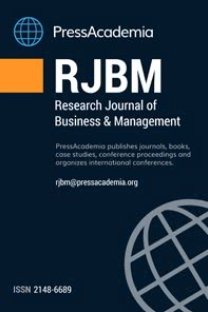Bu araştırmada özellikle, yerli ve yabancı dillerde belirlenen mağaza isimlerinin çağrışımsal farklılıkları üzerinde durulmaya çalışılmakta,aynı zamanda, marka isminde bulunan harflerin, isim uzunluklarının ve isim anlamlarının yarattığı çağrışımlar da ortaya koyulmaktadır.Bazı perakende mağazalar sattıkları ürün markalarını mağazaisimlerinde kullanırken,bazıları ise farklı isimler tercih etmektedirler. Genelde, ulusal veya global markalar mağaza ismi seçerken ürünlerinin isimlerini tercih etmektedirler. Marka bilinirliği olmayan ürünlerin satıldığı mağazalarda ise mağaza isimleri, girişimcinin kendi tercihi ile seçilmektedir. Bu araştırmada, ürün markası olmayan mağaza markaları ele alınmaktadır. Literatürde, mağaza ismi tercihleri, markalaşma süreci kapsamında değerlendirildiğinden, bu çalışmada, öncelikle, marka isim tercihlerinde dikkat edilmesi gereken unsurlar ve marka çağrışımları konularına değinilmektedir.
AN EXAMINATION OF CONSUMERS’ PERCEPTUAL DIFFERENCES OF STORE NAMES IN TURKISH LANGUAGE AND FOREIGN LANGUAGES AND A PHONETICAL EXAMINATION OF CONNOTED METAPHORES
Store name is an important factor in retailing sector. A number of factor including store display window and store atmosphere play significant role in the relationships of retailer with their customers. But store name is of significant importance in attracting customers to store. Espacially the connotation of a store name for customers plays an important role in the word-of-mouth communication and in attracting customers to a newly opened store or a store which has not been visited previously. The process of store name selection may be considered as a branding process. Brand name is perceived by customers as a collection of some connotations. The purpose of this study is to examine the differences in consumers’ perceptions of store names in the Turkish and foreign languages and to uncover customers perceptions via using metahors related to store names with domestic and foreign langues. Also we wanted to examine these metaphores by using a phonetical analysis. Findings indicate that there are some differences in consumers’ perceptions of store names with Turkish language and with foreign languages and some store names tend to associate with some metaphores more frequently. It is expected that the findings of this study will provide some directions to future studies on this topic. In this study we have conducted a survey on 280 participants inhabiting in the state of Düzce, sampled with a convenience sampling methodology. Both quantitatvie and qualitative methods in the study and SPSS 16 was used in the data analysis.
- Yayın Aralığı: Yılda 4 Sayı
- Başlangıç: 2014
- Yayıncı: PressAcademia
